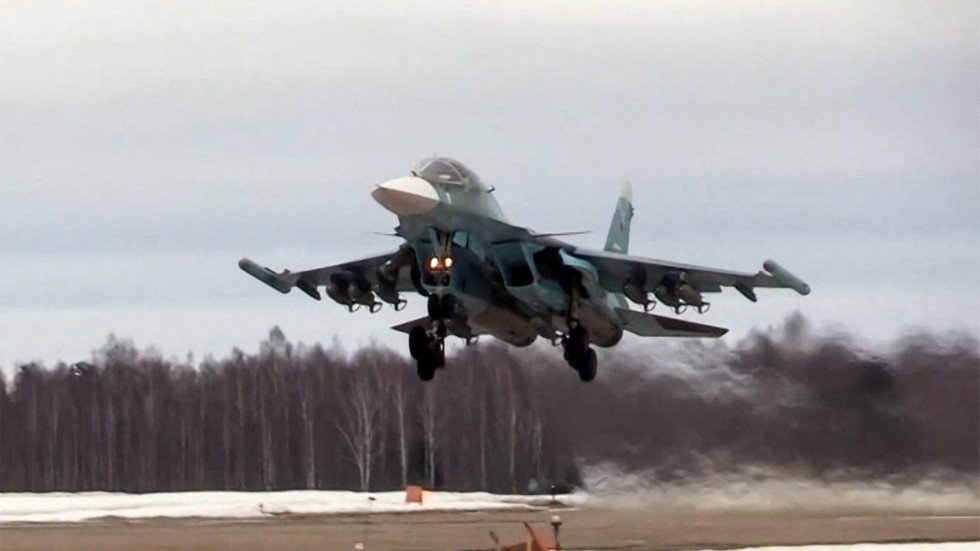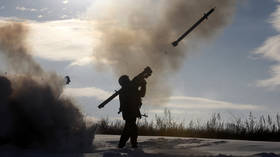
Kiev needs longer-range weapons such as F-16 jets to contend with the aircraft that deliver the munitions, the Air Force spokesman has said

Russian Sukhoi Su-34 fighter-bomber. © Russian Defense Ministry / AFP
Kiev has no way to counter Russian high-precision guided bombs, Ukrainian Air Force spokesman Colonel Yury Ignat admitted on Tuesday, reiterating longstanding requests for modern American jets.
Speaking at a press briefing, Ignat claimed that Russia launches up to 20 guided bombs on the frontline every day. The official pointed out that those munitions can travel some 70km and hit critical infrastructure facilities and other targets.
“We cannot counter this kind of ammunition… and air defense is ineffective,” the spokesman noted, adding that to prevent such strikes, Ukraine has to directly take on the planes that deliver the bombs, usually the Su-34, Su-35, and other tactical aviation aircraft.
To do this, Ignat said that Ukraine needs “a long hand to reach the enemy at a distance further than we can do it now.” He pointed out that one of the longest-range air defense weapons Kiev has is the Soviet-era S-300 missile system, which can reach targets at a distance of up to 100km. He added that Ukraine’s air defense capability had been further reinforced by Western-made weapons with a range of 150km, but that these are in short supply.

Read more
In light of this, he reiterated that the problem could be solved if the West were to provide Ukraine with modern jets. “F-16s can effectively counter Russian aviation all along the forward edge of the battle area,” the spokesman said, adding that such jets could discourage Moscow’s aircraft from approaching the Ukrainian border.
“It’s not necessary to down the enemy aircraft, but we just have to have a strong counter argument,” he added.
In February, US President Joe Biden said that Ukraine “does not need F-16s now,” adding that Washington was concentrating on sending to Kiev “what our seasoned military thinks [it] needs,” including tanks and artillery.
Moscow ramped up its strikes against Ukrainian energy and military infrastructure last October after Kiev carried out several acts of sabotage on Russian soil, most notably the deadly bombing of the strategic Crimean Bridge.
Russia has repeatedly warned the West against supplying Ukraine with weapons, arguing that this will only prolong the hostilities while making it a direct participant in the conflict.




